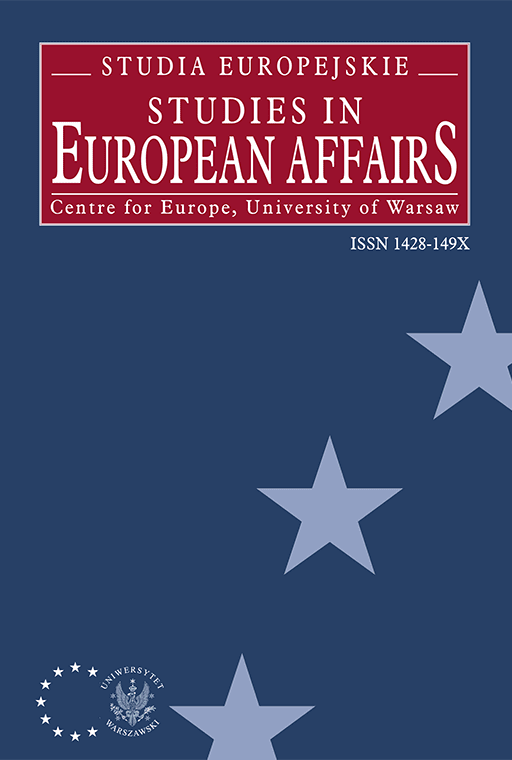
ISSUE: 3/2009
- Volume 51
- Number 3
- 2009
Subscribe NEWSLETTER
Studia Europejskie –
Studies in European Affairs
ISSN: 1428-149X
e-ISSN: 2719-3780
License
Articles published in the journal are under a Creative Commons Attribution – Non Commercial – No Derivatives 4.0 International License
Państwo jako agent i pryncypał w świetle teorii PAT
The State as agent and principal in the light of the PAT theory
Abstract
The ‘fall of the Berlin wall’ and the subsequent move towards democratisation brought about a new opportunity to revisit theoretical deliberations on democracy and democratisation and find appropriate analytical vehicles for the study of Central and Eastern Europe change.
The paper reviews the classic as well as most contemporary argumentation from academic discourse on democratisation and points democratic standards that seem most adequate in Central and Eastern
European Countries (CE EC) context. The road from authoritarianism
does not always lead to liberal democracies, sometimes it does to hybrid regimes or defected democracies, the reforea large part of this paper focuses on the quality of democracy in the CE EC context. In the final part the author concludes on the relative normative power of democracy standards and democratisation patterns as well as suggests further research on post-communist transition and consolidation studies to capture the post-colonialism debate’s conclusion as they may be partly applicable in researching CE EC change.
Language: Polish
Pages: 87-105
How to Cite:
Harvard
Riedel, R. (2009) "Państwo jako agent i pryncypał w świetle teorii PAT". Studia Europejskie – Studies in European Affairs, 3/2009, pp. 87-105.